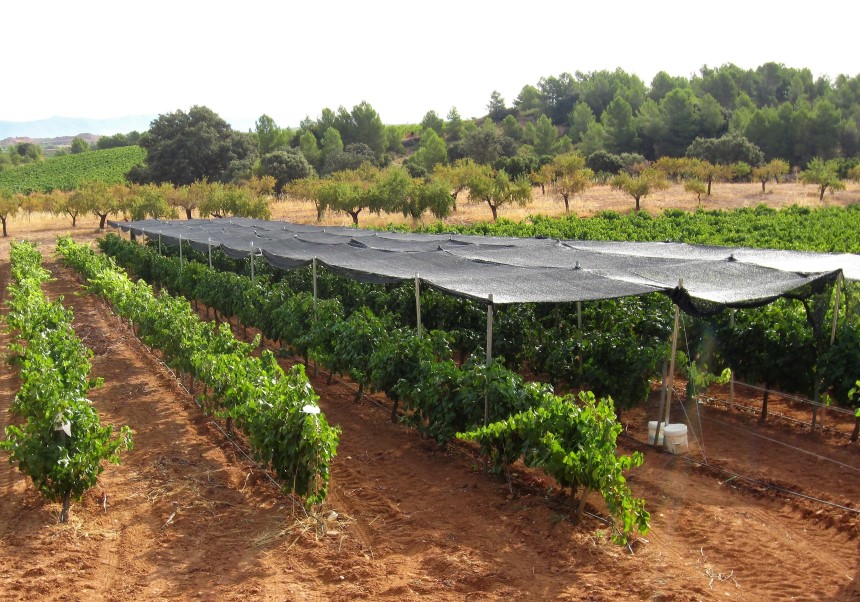
The work carried out by the Desertification Research Centre (CIDE, CSIC - UV - GVA) has shown that different techniques will allow to adapt cava grape cultivation to climate change
The study was carried out in a vineyard in Requena with the Macabeo grape variety
A study published in the journal Frontiers in Plant Science by the Desertification Research Centre (CIDE), a joint center of the Spanish National Research Council (CSIC), the Universitat de València (UV) and the Generalitat Valenciana (GVA), has shown that different strategies for vineyard adaptation to global warming scenarios could preserve and improve the alcohol-acidity balance, resulting in cava wines with better structure and aromatic profile.
The increase in temperatures over the last 20 years has brought forward the harvest date in the Mediterranean region by an average of 6 days, altering the composition of the musts. In regions with a continental and semi-arid climate such as Requena, grapes quickly reach high sugar concentrations and high acidity values, while their phenolic compound content increases more slowly. In addition, high nighttime temperatures cause changes in varietal expression, which can result in low-quality wines. In the Utiel-Requena wine region, these effects could alter the typicity of its wines and specifically that of cava, compromising the competitiveness of the Requena wine sector.
Due to the loss of wine quality, CIDE researchers have evaluated in a vineyard in Requena the agronomic effectiveness of various cultivation techniques, such as shading the vines, forced budding (i.e., severe pruning after flowering), late pruning and mulching, to improve the composition of the Macabeo grape, a variety used in the area, in order to produce a better cava. Among the results, it has been observed that the forcing of buds improved the composition of the grape, with a higher alcohol-acidity ratio and a lower degree of acidity of the latter.
According to Diego S. Intrigliolo, CIDE scientist who participated in the study, "the results have shown that by means of agronomic techniques it is possible to modify the composition of the grape and have a significant influence on the quality of the base wines for the subsequent production of cava".
Adaptations to climate change
All the techniques tested have served to improve the composition of the base wine with which to make cava. The effectiveness of shading will depend to a large extent on the climatic conditions during the grape ripening period, and more attention should be paid to the state of health of the grapes. In rainy and cool years, the application of the shading technique is not recommended, as it would be much more effective in hotter and drier vintages. On the other hand, the bud forcing technique is only recommended for the production of premium cava with a high commercial value.
"In the soil and climatic conditions of Requena, the main agronomic and enological challenge faced by cava producers is the low acidity and high pH of the grape must. In this sense, the effectiveness of the techniques has been demonstrated, since they allow modifying the microclimate of the cluster during the ripening period and reducing the alcohol-acidity ratio in base wines for cava", explains Diego S. Intrigliolo.
The research has been carried out in collaboration with the University of the Balearic Islands (UIB), the Valencian Institute of Agricultural Research (IVIA) and the Technological Institute of Viticulture and Enology of Requena.
Reference:
Buesa Ignacio, Yeves Antonio, Guerra Diego, Sanz Felipe, Chirivella Camilo, Intrigliolo Diego S. Testing field adaptation strategies for delaying grape ripening and improving wine composition in a cv. Macabeo Mediterranean vineyard. 2023. Frontiers in Plant Science, 14. https://doi.org/10.3389/fpls.2023.1155888
CIDE Communication









